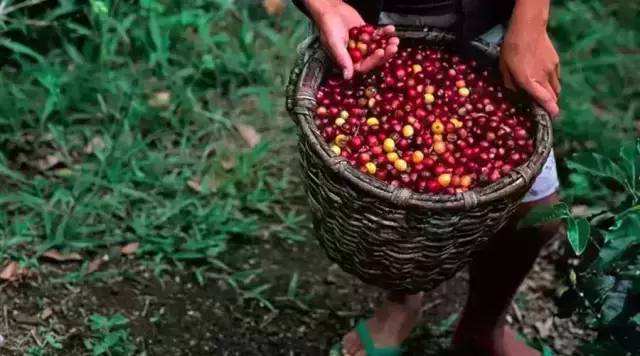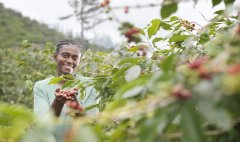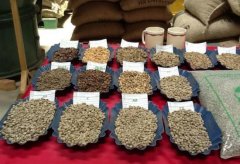The Secret of Kenyan Coffee beans characteristics of Kenyan Coffee
The secret of Kenyan coffee
Kenya AA coffee is one of the rare good coffee, it is famous for its rich aroma and balanced acidity, it is perfect and balanced, and has a wonderful and strong flavor, both fresh and not overbearing, is a complete but not heavy taste experience.
Kenyan coffee from Africa is the most popular coffee in Europe. It has a wonderful and strong flavor; take a sip and feel that it strikes your whole tongue at the same time, the flavor is both fresh and not domineering, and it is definitely a complete but not heavy taste experience. You should know that Kenya grows high-quality Arabica coffee beans, which absorb almost the essence of the whole coffee tree, with a slightly sour, thick aroma, bright, complex, fruity flavor and grapefruit aroma, suitable for hot or ice drinks. It is for this reason that Europeans love Kenyan coffee, especially in Britain, and even surpass Costa Rican coffee as one of the most popular coffee.
As early as the 19th century, Ethiopian coffee drinks were imported into Kenya through Yemen. But it was a century before the Bourbon Coffee Tree was introduced to Kenya by the St. Austin Mission.
Kenyan coffee is generally grown at an altitude of 1500 to 2100 meters and is harvested twice a year. To ensure that only ripe berries are picked, local coffee farmers often make about seven rounds of inspection in the forest. Kenyan coffee is generally grown by small farmers, who usually send fresh coffee beans to cooperative cleaning stations after harvesting. The washing station sends the dried coffee to the cooperative in the form of "parchment coffee beans" (that is, coffee beans covered with endocarp) to the cooperative ("parchment coffee beans" is the last state before coffee beans are peeled). All the coffee is collected together, and the growers charge the average price according to their actual quality. This trading method generally works well and is fair to both growers and consumers.
The Kenyan government takes the coffee industry very seriously and responsibly, where it is illegal to cut down or destroy coffee trees. Kenyan coffee buyers are world-class high-quality coffee buyers, and no other country can grow, produce and sell coffee on a continuous basis like Kenya. All coffee beans are first acquired by the Kenya Coffee Commission (CoffeeBoardofKenya, CBK), where they are identified, graded, and then sold at weekly auctions, where they are no longer graded. The Kenya Coffee Commission only acts as an agent to collect coffee samples and distribute them to buyers so that they can determine the price and quality. The Nairobi auction is for private exporters and the Kenya Coffee Commission pays growers a price below the market price. The best coffee grade is bean berry coffee (PB), followed by AA++, AA+, AA, AB and so on. The fine coffee is shiny, delicious and slightly alcoholic.

Important Notice :
前街咖啡 FrontStreet Coffee has moved to new addredd:
FrontStreet Coffee Address: 315,Donghua East Road,GuangZhou
Tel:020 38364473
- Prev

Coffee harvesting and screening how coffee fruits become coffee beans
The work to be done in a coffee plantation is much more than planting and harvesting. Coffee fruits are picked almost immediately when they are ripe, and it is not easy to judge the fruits of a tree at different ripening stages. In most Arabica coffee growing areas, ripe coffee cherries must be carefully picked by hand and placed in the picker's basket, and its weight determines the picker.
- Next

How do Kenyan coffee beans grade Kenyan coffee rating
Kenya's bean grading system is quite perfect, according to the size of coffee beans.
Related
- Beginners will see the "Coffee pull flower" guide!
- What is the difference between ice blog purified milk and ordinary milk coffee?
- Why is the Philippines the largest producer of crops in Liberia?
- For coffee extraction, should the fine powder be retained?
- How does extracted espresso fill pressed powder? How much strength does it take to press the powder?
- How to make jasmine cold extract coffee? Is the jasmine + latte good?
- Will this little toy really make the coffee taste better? How does Lily Drip affect coffee extraction?
- Will the action of slapping the filter cup also affect coffee extraction?
- What's the difference between powder-to-water ratio and powder-to-liquid ratio?
- What is the Ethiopian local species? What does it have to do with Heirloom native species?

